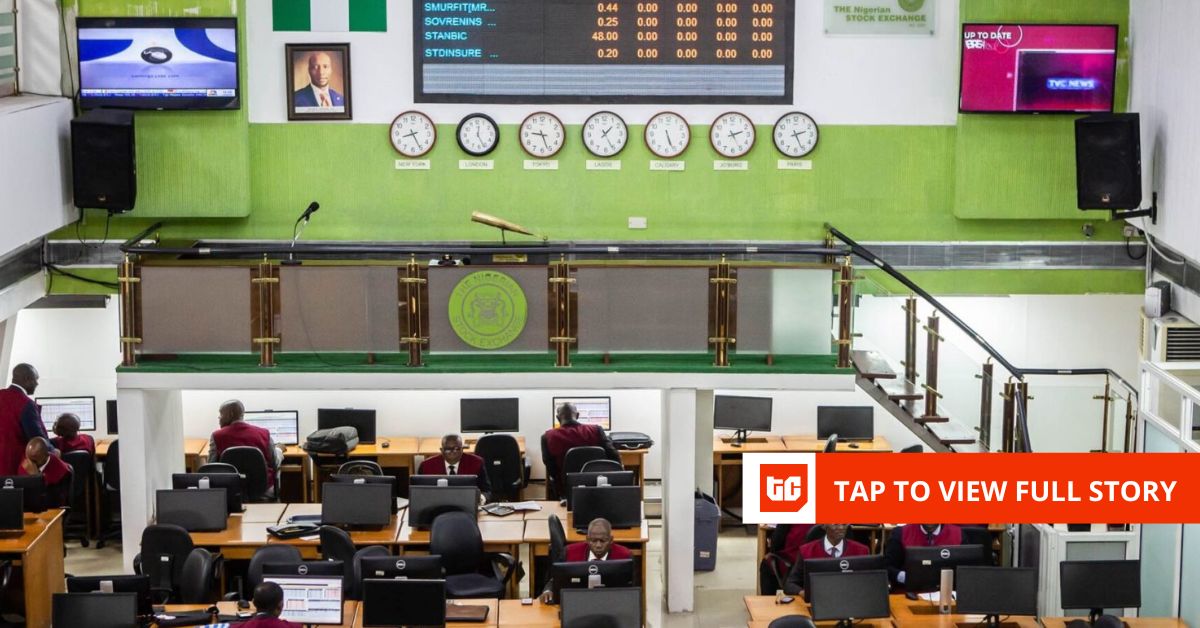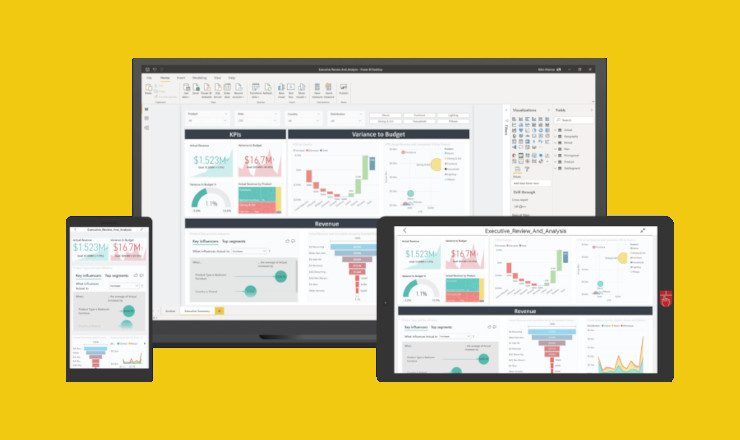This is Follow the Money, our weekly series that unpacks the earnings, business and scaling strategies of African fintechs and financial institutions. A new edition drops every Monday.
Revenue is the lifeblood of any business. For tech firms listed on the NGX, revenue growth has translated into profit that excites investors and boosts share price.
From software deals and airtime sales to IT support, three tech companies — Chams, eTranzact, and CWG — generated a combined ₦59.93 billion ($39.11 million) in the first half of 2025, up 29.17% from ₦46.39 billion ($30.27 million) in the same period of 2024. Together, they booked ₦15.95 billion in gross profit, 43.49% higher than H1 2024.
These firms are also winning on the NGX, with investors betting on their prospects. CWG’s stock price has soared 117.45% this year, closing at ₦16.20 per share on August 15. eTranzact has gained 63.85% to ₦10.65, while Chams has risen 35.71% to ₦2.85.
So, how exactly are these companies making money and keeping investors happy?
Chams: Riding on payments and ID card sales
For Chams, payment collection (Chams core) and the sales of identity cards remain its main income streams. These two revenue lines contributed 70.10% of its ₦9.88 billion revenue in H1 2025.
The 40-year-old firm, which offers identity management, security, and transactional solutions, serves a wide range of clients, including government agencies — the Independent National Electoral Commission, Nigerian Customs Service, National Health Insurance Scheme, Nigerian Communications Commission — and banks such as First Bank, Keystone, and Sterling.
While it still earns a lot from printing cards for commercial banks, Chams told in March 2025 that it has expanded into producing SIM cards.
“The expansion into the production of SIM cards for telecommunications providers and initiatives in cross-border payments are key contributors to performance enhancement,” a spokesperson said.
Despite recording an 18.80% revenue growth, the firm’s cost of sales increased by 40.29% to ₦7.92 billion, mainly driven by the ₦4.12 billion spent on business process outsourcing, reflecting its reliance on external resources.
This cost, including expenses related to identity management (₦1.56 billion) and payment collection (₦1.24 billion), lowered gross profit by 26.63% to ₦1.96 billion. Profit after tax fell 53.52% to ₦418.96 million.
Chams’ receivables rose by ₦2.02 billion to ₦8.14 billion, indicating delayed payments, while payables increased slightly by ₦112.27 million to ₦6.16 billion.
After recording a 42% year-on-year revenue growth of ₦14.93 billion in 2024, its chairman, Demola Aladekomo, said the company remained “focused on expanding our market presence through fundraising, capacity enhancements at CardCentre, and continued partnerships at ChamsSwitch.”
He highlighted that these moves demonstrate the firm’s ambition to become a leading provider of secure, cost-effective digital payment solutions.
On August 5, Chams announced plans to raise ₦7.65 billion through a rights issue and private placement. The funds will be invested in an EMV-certified card personalisation plant, cross-border digital payments, and new switching infrastructure to improve transaction reliability and speed.
These expansion plans reveal where Chams’ heart is: doubling down on its two most valuable revenue sources.
CWG: Betting on software and IT infrastructure
Once known for reselling Oracle hardware, CWG Plc has established itself as a full-stack IT company providing software, IT infrastructure, and managed services for banks, telcos, and government across the continent.
In 2024, the firm nearly doubled its revenue to ₦46.4 billion (up 97% from ₦23.5 billion in 2023), with profit after tax rising 428% to ₦3.04 billion. Much of this growth came from assisting major banks such as GTBank, UBA, and First Bank migrate to the Finacle core banking platform, in partnership with Infosys.
The firm continued its momentum in 2025, posting revenues of ₦36.77 billion, a 52.98% increase from ₦24.03 billion in H1 2024. Gross profit surged 73.20% to ₦8.33 billion, while profit after tax increased 113.27% to ₦3.56 billion.
Software, IT infrastructure, and managed support services made up 97.98% (N36.02 billion) of revenue. In H1 2025, software revenue alone grew 103.60% (N19.95 billion), with only 43.71% (₦8.72 billion) coming from Nigeria; the remaining revenue originated from Ghana, Uganda, and Cameroon.
Managed support services, including software support, hardware support, performance monitoring, on-site technical support, and maintenance, nearly doubled to ₦9.67 billion. IT infrastructure services, comprising equipment sales and IT support, declined 26.51% to N6.40 billion.
Despite overall revenue growth, the firm’s cost of sales, mainly costs to original equipment manufacturers, increased 47.92% to ₦28.44 billion. CWG has achieved 79.25% of its 2024 full-year revenue within six months and is on track for more.
In June, it partnered with Taraba State to digitise and optimise its sports gaming revenue collection processes. Also, it is expanding into East Africa and the Middle East this year after experiencing success in its other African operations in 2024.
“We are poised for even more significant revenue and profit growth in 2025,” a CWG spokesperson stated in an email to in early 2025.
eTranzact: Airtime still king, fintech ambitions grow
For eTranzact, revenue declined 5.43% to ₦13.28 billion in H1 2025, but gross profit increased 39.58% to ₦6.44 billion as the cost of sales reduced by 27.48% to ₦6.84 billion. Profit after tax grew 18.32% to ₦1.51 billion.
While the company did not provide a detailed revenue breakdown, it has long relied on airtime sales, which amounted to ₦16.83 billion in 2024 (56.29% of total revenue).
After earning ₦24 billion from mobile airtime sales in 2023, Niyi Toluwalope, the company’s managing director and CEO, told that the focus extends beyond airtime sales.
“We aggregate for the telcos because the telcos want to use trusted platforms to sell airtime,” he explained. “It is not a growth product. We do it because we exist. Our growth drivers are switching and merchant acquiring. The future revenue earner is our direct-to-consumer platform.”
The payment provider operates mainly in switching, merchant acquiring, and consumer products. Its consumer-facing offerings include PocketMoni (a fintech app), Corporate Pay (for salary payments), PayOutlet (merchant payments), SwitchIT (transaction processing), and Credo (a payment gateway for social commerce).
It has also started betting on AI to create practical solutions for SMEs.
“At eTranzact, innovation is core to our values, and we are committed to collaborating with policymakers, innovators, and SME leaders to develop practical AI solutions that address real business needs,” Toluwalope said at the recent launch of an AI report.
While the firm continues to flirt with other ambitions, including mobile money, airtime sales remain its backbone.
The half-year results of these firms — Chams, eTranzact, and CWG — reflect continued trust in Nigeria’s tech sector, which is championing the country’s transition into a fully digitised economy.
Mark your calendars! Moonshot by is back in Lagos on October 15–16! Join Africa’s top founders, creatives & tech leaders for 2 days of keynotes, mixers & future-forward ideas. Early bird tickets now 20% off—don’t snooze! moonshot..com












